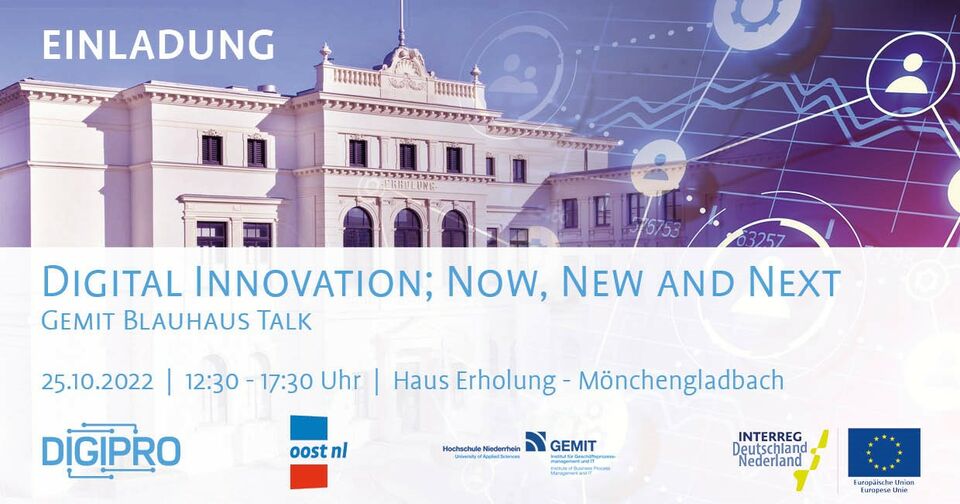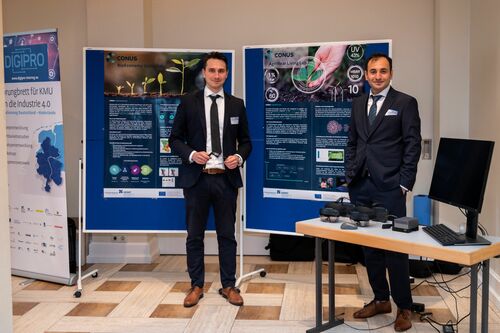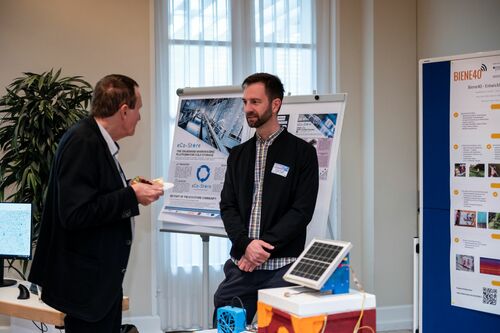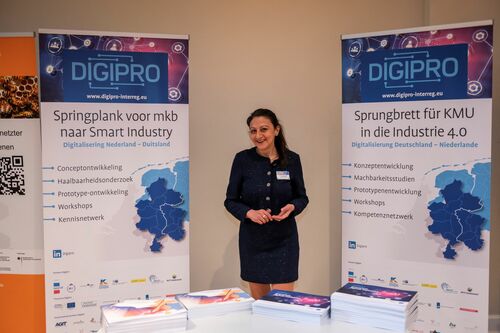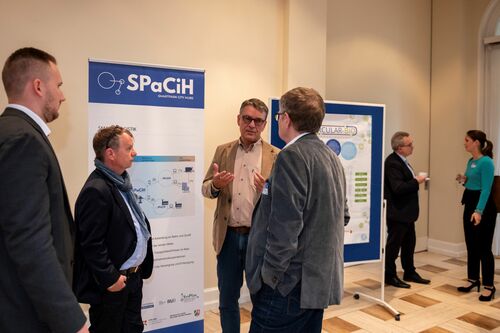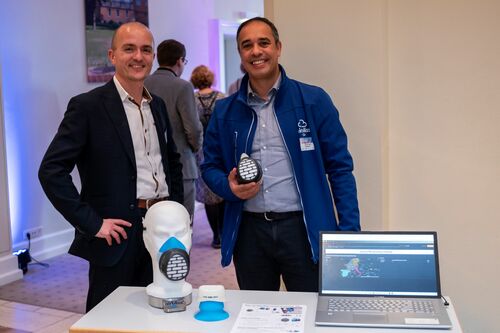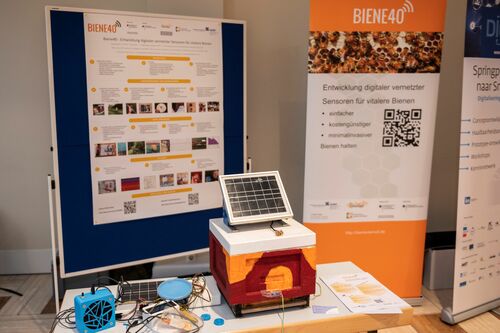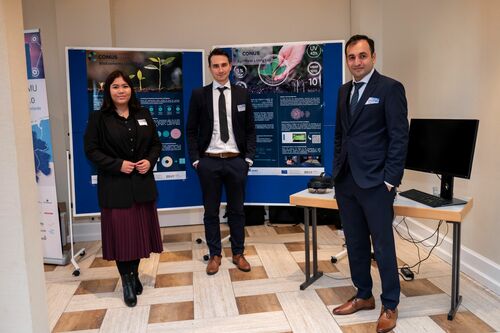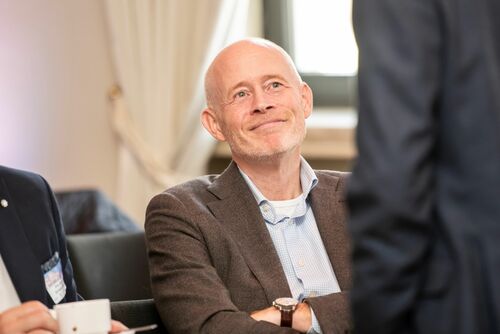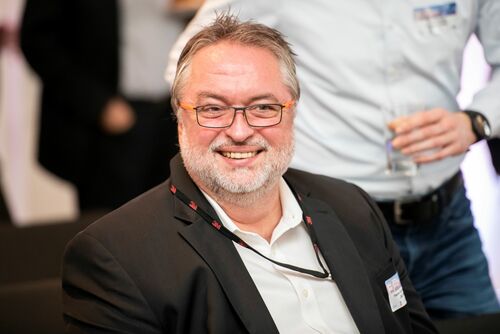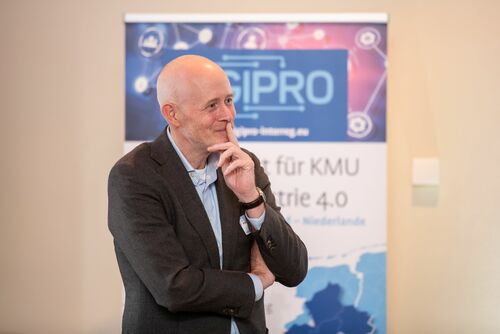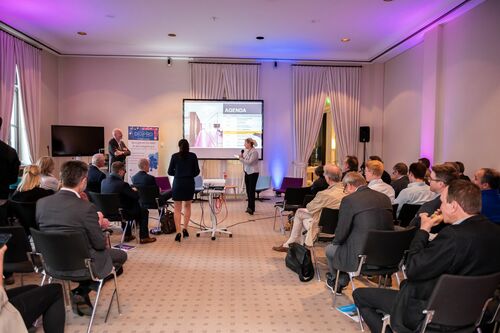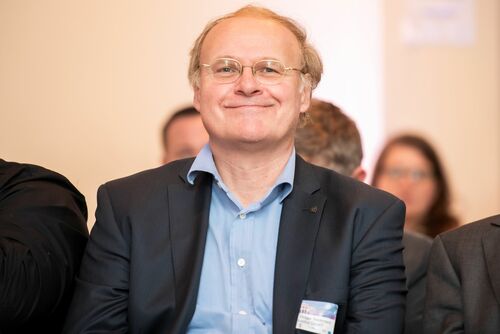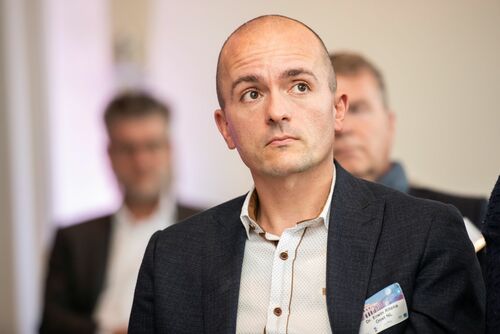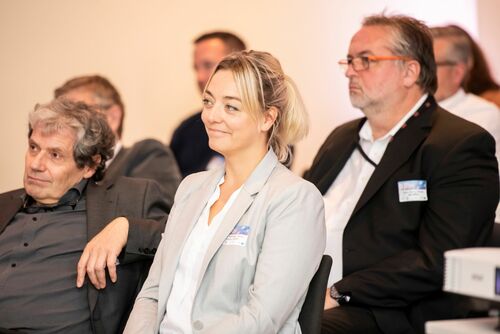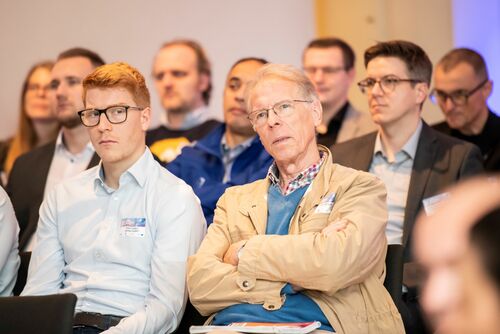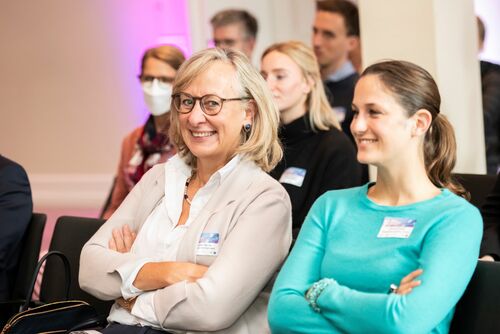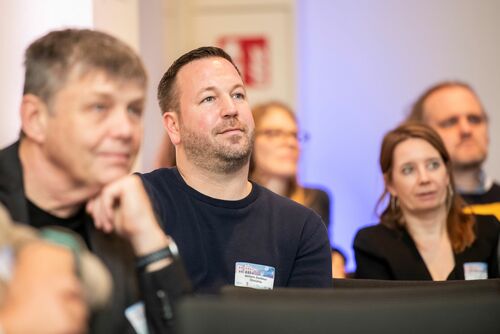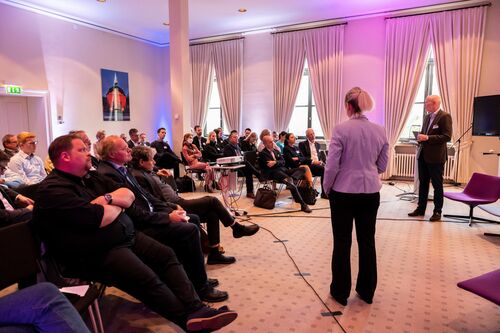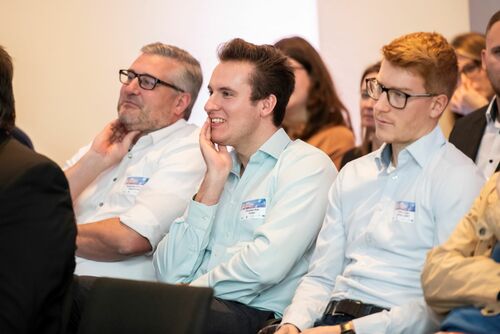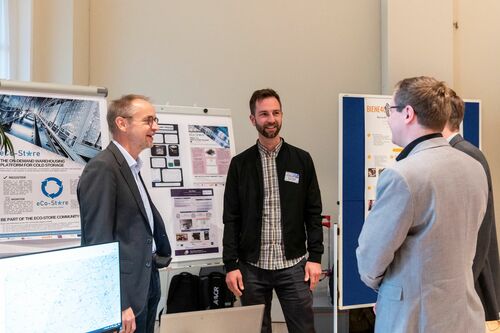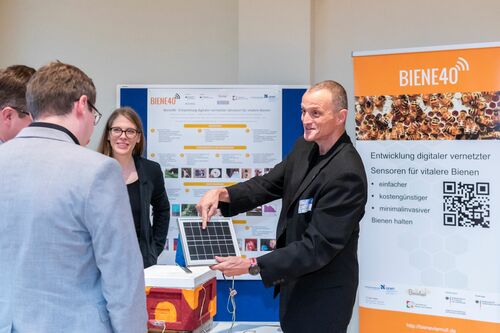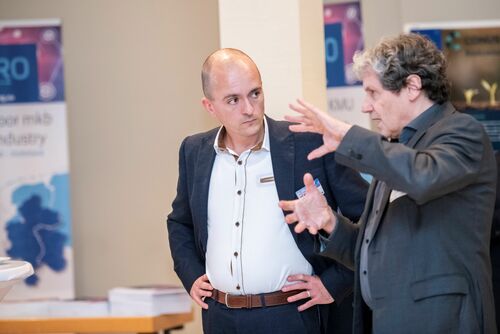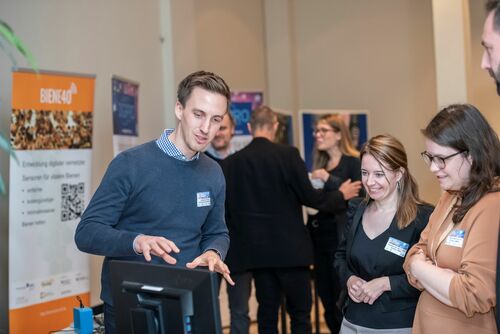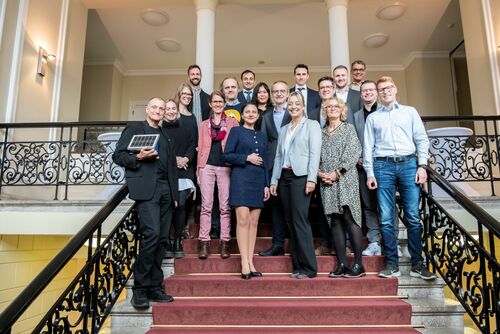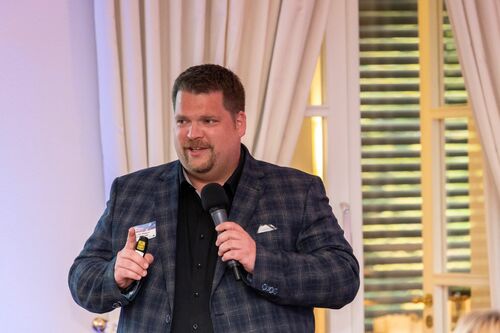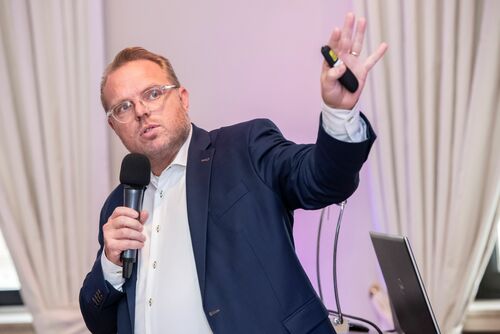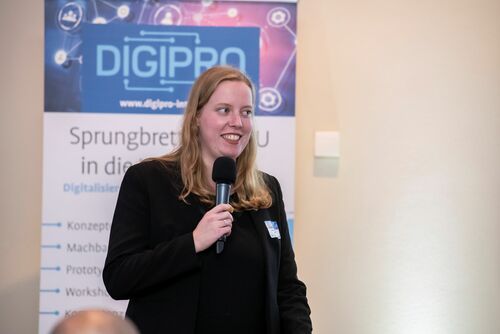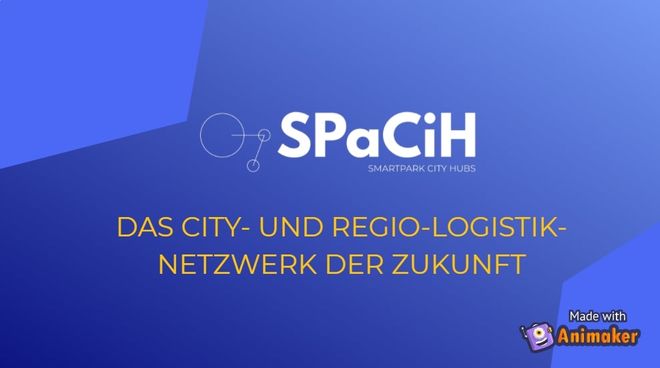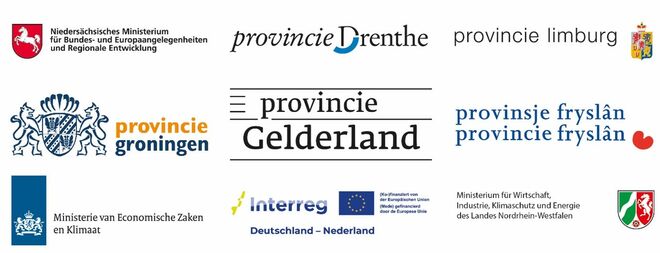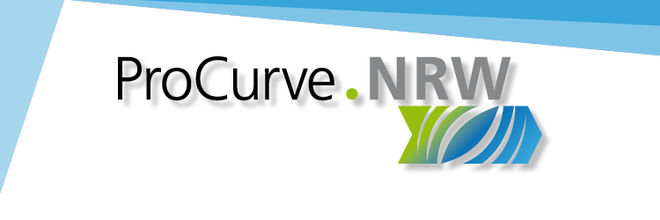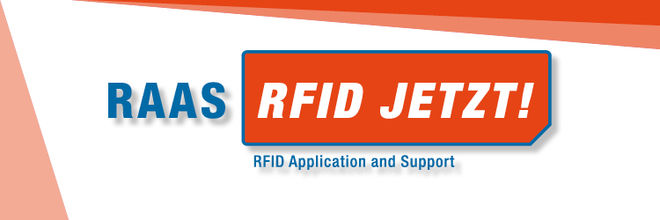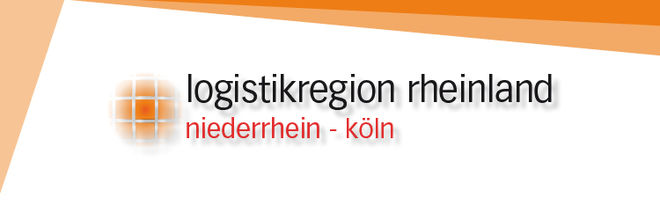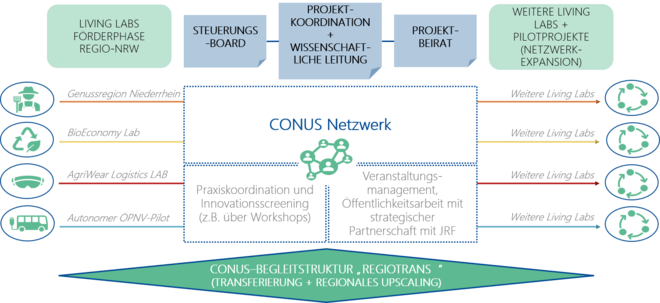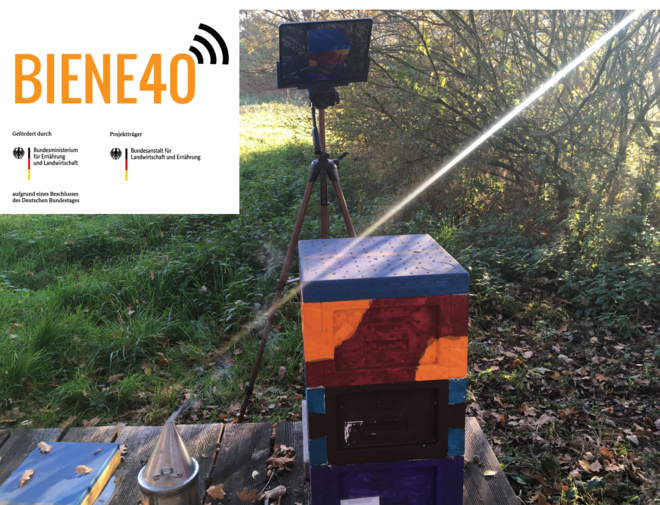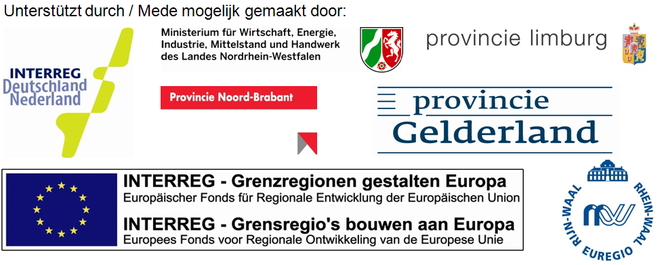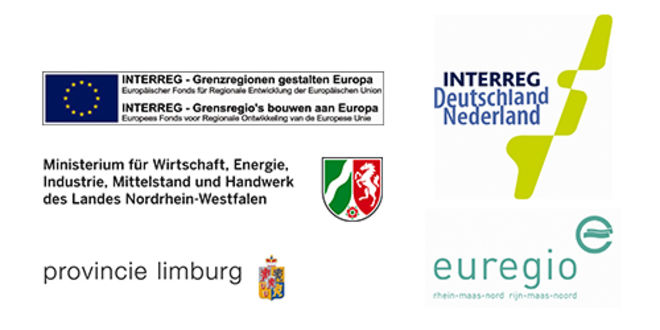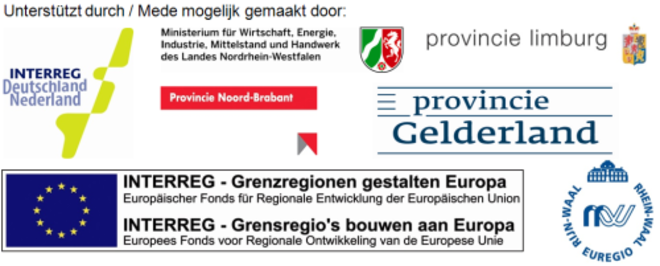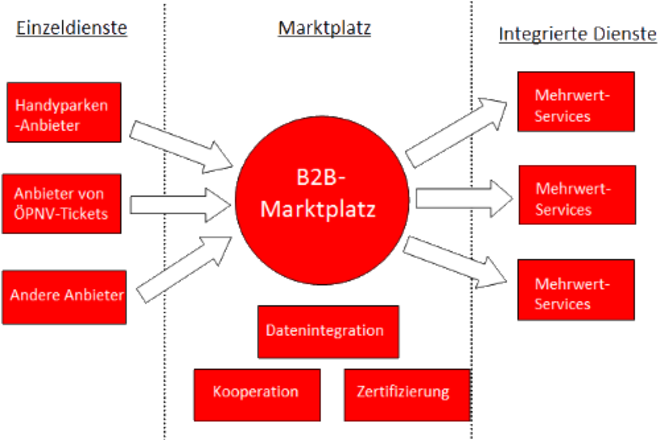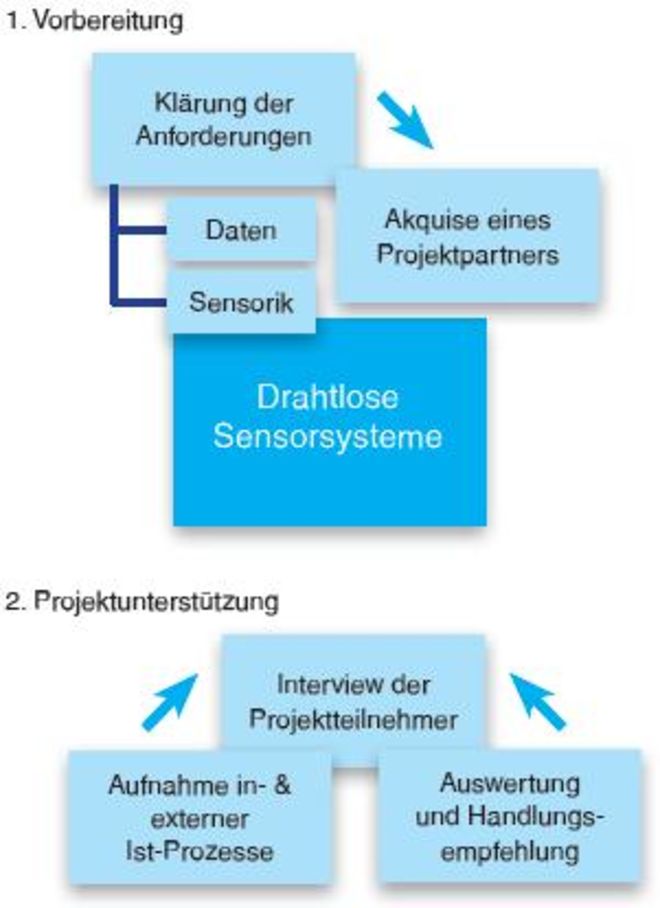STRASUS: Strategic sustainability for logistics by means of a business game.
Project duration: June 2017 to May 2020
Project funding: INTERREG-V-A(www.deutschland-nederland.eu)
The project STRASUS is carried out within the INTERREG program Germany-Nederland and is co-financed with 1.071.158,00 Euro by the European Union, the Dutch Ministry of Economic Affairs (Ministerie van Economische Zaken en Klimaat), the MWIDE NRW and the Provincie Gelderland.
Initial situation
The STRASUS project supports German and Dutch SMEs (small and medium-sized enterprises) from the logistics sector in the systematic development, creation and implementation of an individual sustainability strategy.
The topic of sustainability or Corporate Social Responsibility (CSR) encompasses the contribution of companies to sustainable development in ecological, social and economic terms, while valuing the demands of their stakeholders. In recent years, this topic has also become increasingly important in the logistics sector.
The main target group of the project are SMEs from the logistics sector in the border region rhine-maas-north and rhine-Waal, whose competitiveness compared to large companies is to be strengthened.
Objectives
The STRASUS project aims to "gamify" the creation and, above all, active implementation of a sustainability strategy, i.e. to make it a playful experience. In this way, the logistics sector in Germany and the Netherlands is to be prepared for the changing requirements of the future in a more targeted and efficient manner than has been possible up to now. Serious Gaming Modules (SGM), or business game modules, are to be created for this purpose, since with their help complex contents and facts can be grasped faster and more permanently. The focus is on the core topic of sustainability in corporate strategy. The SGM will be designed and developed on the basis of the sustainable strategy creation process as well as best practices in order to be as practical oriented as possible and thus relevant for the participating companies. The main objective is to create a holistic concept in which structured and intensive short workshops and business game elements complement each other in a meaningful way. In this way, the growing demand for CSR continuing training can be met without ignoring the prevailing lack of time in the logistics sector.
Approach
The STRASUS project is divided into the following four work packages:
Content:
1. Serious Gaming Module
2. Workshops
Administrative:
3. PR and Marketing
4. Project Management
In work package 1, the business game modules are designed, which are then tested, realized and applied in the workshops from work package 2 during the project duration. In work package 3, the scientific project partners will develop a model for the continuation of the workshop-serious gaming concept according to the "train-the-trainer" approach. This will ensure that the holistic concept can be continued after the end of the project on both the German and Dutch sides at the same quality level, albeit at a cost. In addition, effective communication with other small and medium-sized enterprises (SMEs) from the region will be ensured and the dissemination of the concept will be promoted. In work package4, the central project managementof STRASUS will be handled.
Work package 1: Serious Gaming
The logistics industry is mostly characterized by high fluctuation, time pressure and lack of experience of the employees. By shortening the learning phase, gamification should contribute to the implementation of internal continuing training with less time expenditure and less interference with the daily business.
1. objectives
In the first work package (WP1), a serious game (SG) will be created to support logistics companies on-the-job at different levels in the process of creating a sustainability strategy and to raise awareness of the many facets of sustainability. This process also specifies the levels of the workshops (see work package 2 (WP2) for a detailed description). The main aim is to train strategic thinking and to raise awareness for a balance of social, economic and environmental aspects of a decision. Through the playful introduction to the new topics, the learning process is not perceived as work. The "fun of it" alone can motivate employees to learn. Their own ambition is awakened and they want to accept and master the challenge on their own initiative. Added to this is curiosity: What's next? What else can I do? Can I outdo the other players next time? A serious game combines learned knowledge with application: Thus, more comprehensive and cross-thematic action structures are imprinted. Learning takes place passively, while players can act actively without having to observe social or local constraints or fear real consequences.
2. realization
The business game will be developed on the basis of the computer-supported action learning approach, since this method has proven itself especially for action-oriented target groups (e.g. logisticians) and ensures a high learning transfer.
Work package 2: Workshops
Work package 2 is oriented towards the creation process of a sustainable corporate strategy. However, since this process can neither be implemented successfully nor with lasting positive effects in practical application without competent guidance and regular expert support, individual sustainability strategies are prepared in close cooperation with the logistics partners in the project. The following steps are implemented for this purpose:
- Assessment of the logistics partners' current corporate strategies
- Exchange with management and relevant employees on their own CSR level
- Identification of successes and problems in the company through CSR assessment
External companies can participate free of charge in workshops on the following topics depending on their own requirements:
Level 1 / Workshop 1: Foundation courses of CSR in logistics: What is CSR?
- Raising awareness of doing business in harmony with society, the environment and financial gain
- Importance/relevance of concepts such as the carbon footprint and the social footprint for companies
- Certifications (implicit or explicit)
- Mission and vision: goal identification
Level 2 / Workshop 2 Introduction to analysis methods for a successful CSR strategy
- Theoretical introduction to survey, analysis, evaluation, draft solutions, evaluation and selection of draft solutions
Stage 2 / Workshop 3: Case study: problem areas and appropriate metrics.
- Identification/ delimitation of relevant survey areas or case study/ model company
- Problem areas VS target definition
- Getting to know suitable key figures and their survey bases
Step 3 / Workshop 4: ...but how to implement CSR? Basis for implementation
- Evaluation of zero measurement
- Sensitization for internal communication and correlations within the company for the implementation success of CSR
Level 3 / Workshop 5: ...but how to implement CSR? Certifications
- Preparation for relevant certifications and more in CSR management
Level 4 / Workshop 6: Preparing your own CSR report
- Preparation for the creation of a report, e.g. according to GRI (Global Reporting Initiative)
Would you like to participate in one of the above workshop concepts? Contact us to be informed about current dates!
Active project partners
Three scientific partners (Institut Gemit of HSNR, ICIS of Maastricht University and the Hogeschool van Arnhem en Nijmegen) and six industrial partners(Johs. Stelten GmbH & Co. KG from Krefeld, the Mönchengladbach-based juice producer Valensina GmbH, the Schwert-based software developer BuGaSi GmbH, the Dutch transport companies H.M. Verploegen and Gesink B.V., and the cold storage and technology company FFT projects).



